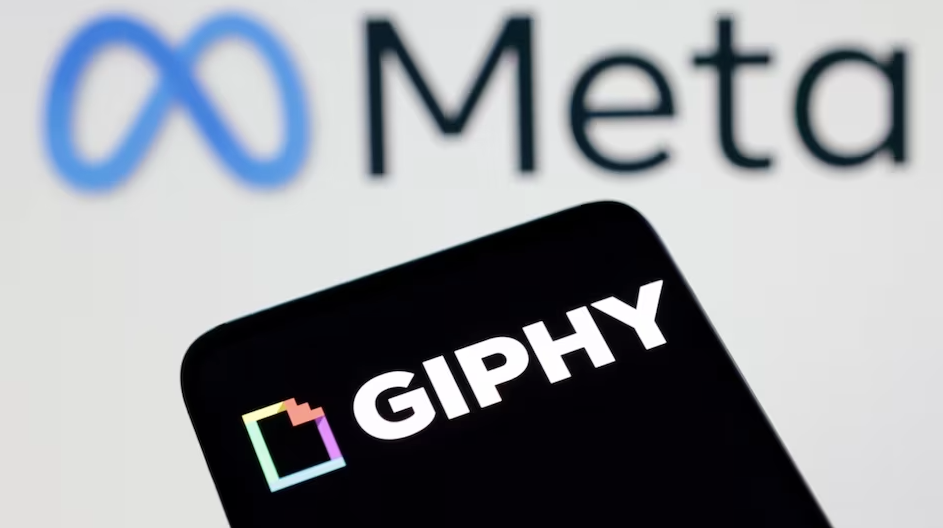|
Getting your Trinity Audio player ready...
|
In a surprising move, Meta, the parent company of Facebook, Instagram, and WhatsApp, has sold the popular animated-gif search engine, Giphy, to Shutterstock for $53m. This comes just three years after Meta acquired Giphy for a whopping $400m. The sale was prompted by an order from the UK’s competition watchdog, which cited concerns about competition in the social media and advertising sectors.
Giphy holds a dominant position as the primary supplier of animated gifs to popular social networks like Snapchat, TikTok, and Twitter. Despite the ownership change, Meta’s platforms will still have access to Giphy’s vast content library as part of the deal.
Giphy boasts impressive usage statistics, with over 1.3 billion search queries received daily and its content viewed a staggering 15 billion times. The sale of Giphy marks a significant development in the evolving landscape of online visual communication.
The Competition and Markets Authority (CMA) initially issued the order for Meta to divest Giphy in November 2021. The CMA’s investigation concluded that Meta’s ownership of Giphy would harm competition in the social media and advertising markets. This decision marked the first time the regulator had blocked a deal involving a major Silicon Valley company.
Meta attempted to challenge the CMA’s order in September, arguing that gifs had become less popular among younger users. However, in October, Meta reluctantly agreed to comply with the regulator’s directive to sell Giphy.
Shutterstock, a leading provider of stock images and videos, expressed enthusiasm about acquiring Giphy. Paul Hennessy, the CEO of Shutterstock, highlighted Giphy’s role in enabling users to express themselves through gif and sticker content. He also emphasized the opportunity for brands to engage in casual conversations through Giphy’s platform.
Giphy’s extensive library is fueled by contributions from individual artists and collaborations with renowned companies such as Disney and Netflix. This ensures a constant stream of fresh and relevant content that can be seamlessly integrated into everyday conversations and shared across various social media platforms.
With the sale of Giphy, Meta aims to address regulatory concerns while Shutterstock seeks to leverage Giphy’s unique content offerings to enhance its own services. As the landscape of online communication continues to evolve, the impact of this transaction on the social media and advertising industries remains to be seen.
The acquisition of Giphy by Shutterstock signals a strategic move for both companies in the dynamic digital content market. While Meta relinquishes ownership of Giphy to comply with regulatory demands, Shutterstock sees an opportunity to tap into the vast potential of gif and sticker content.
Giphy’s integration into Shutterstock’s portfolio aligns with the company’s vision to provide a diverse range of visual assets for users worldwide. By adding Giphy’s extensive library to its existing collection of stock images and videos, Shutterstock aims to cater to the growing demand for engaging and expressive visual content in social media conversations.
Giphy’s unique appeal lies in its collaborative ecosystem, where individual artists and major companies contribute to a constantly evolving library of gifs and stickers. Through partnerships with entertainment giants like Disney and Netflix, Giphy ensures that its content remains current, relevant, and shareable across social media platforms.
For Shutterstock, the acquisition presents an opportunity to expand its reach and diversify its offerings. By incorporating Giphy’s content into its platform, Shutterstock can now cater to users seeking more dynamic and interactive visual elements to enhance their online communication. This move aligns with the shifting preferences of internet users, who increasingly seek novel ways to express themselves in digital conversations.
While Meta’s decision to sell Giphy may appear driven by regulatory pressure, it also reflects the company’s focus on its core platforms. By divesting itself of Giphy, Meta can streamline its operations and prioritize its social media ecosystem. Facebook, Instagram, and WhatsApp will continue to benefit from Giphy’s content while Meta concentrates on strengthening its existing services.
As the deal between Meta and Shutterstock concludes, users can expect Giphy’s integration into the Shutterstock platform to take place gradually. The transition will likely involve aligning the technical infrastructure and ensuring a smooth user experience across both platforms. The acquisition may also present opportunities for collaboration between Shutterstock and Giphy’s content creators, fostering innovation and expanding the boundaries of visual communication.
The sale of Giphy represents a significant development in the digital content landscape. It showcases the evolving dynamics of competition in the social media and advertising sectors while highlighting the growing importance of engaging visual content in online conversations. As Shutterstock takes the reins of Giphy, users can anticipate new possibilities in their creative expression and enhanced visual experiences across various platforms.



